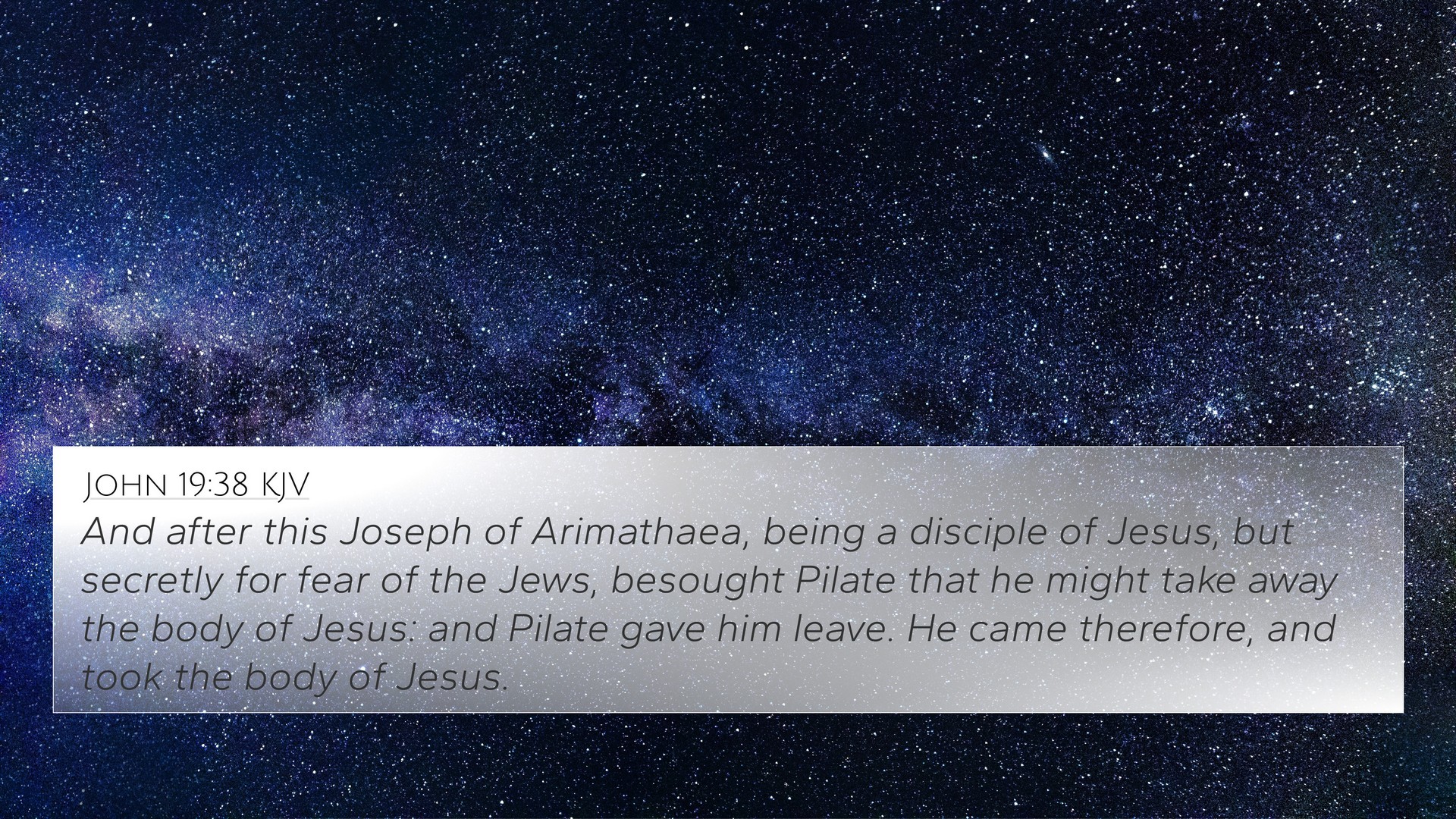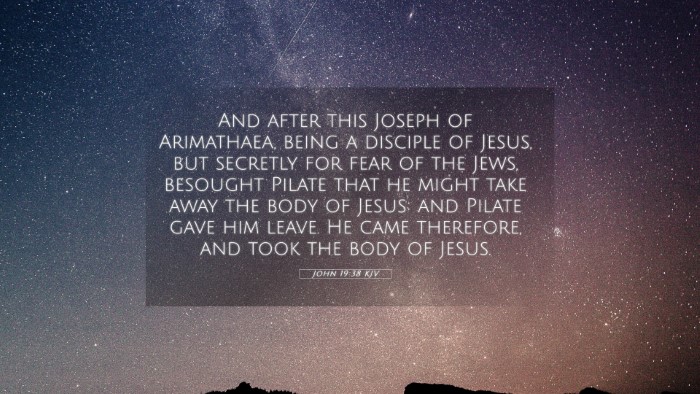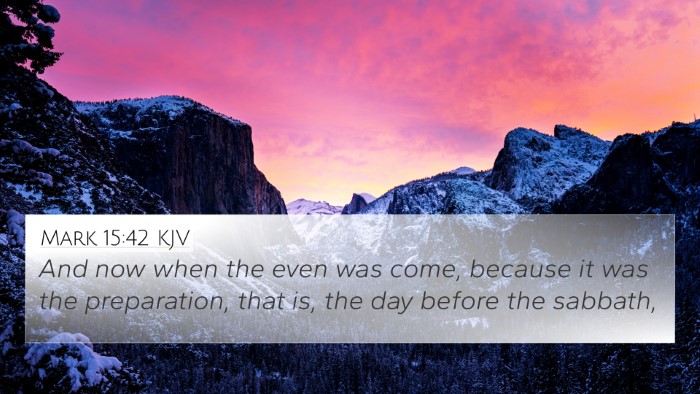Understanding John 19:38
John 19:38 states, "After this Joseph of Arimathea, being a disciple of Jesus, but secretly for fear of the Jews, besought Pilate that he might take away the body of Jesus: and Pilate gave him leave. He came therefore, and took the body of Jesus."
Overview
This verse depicts a pivotal moment after the crucifixion of Jesus Christ, displaying the actions of Joseph of Arimathea, who, despite his secret discipleship, takes bold steps to give Jesus a proper burial. This has rich theological implications regarding fear, discipleship, and the fulfillment of Old Testament prophecies.
Commentary Insights
Matthew Henry's Perspective
Joseph of Arimathea: Henry emphasizes that Joseph was a prominent member of the council, hinting at his dramatic transformation from fear to boldness. Initially a secret disciple, his request to Pilate highlights his courage as he steps forward to care for Jesus’ body, illustrating how true faith, once concealed, can lead to profound action.
Albert Barnes' Commentary
Boldness in the Midst of Fear: Barnes notes the significance of Joseph's actions under the threat of Jewish authorities. His approach to Pilate, though risky, was rooted in his respect for Jesus and the hope that followers should have in God’s plans, even when faced with societal pressures. He emphasizes the human tendency to fear men over God and contrasts it with Joseph's eventual public acknowledgment of Jesus.
Adam Clarke's Insights
Fulfillment of Prophecy: Clarke relates this account to the prophecies concerning the burial of the Messiah. He cites Isaiah 53:9, which states, "And he made his grave with the wicked, and with the rich in his death," indicating that Joseph’s actions were integral to the fulfillment of these prophecies, symbolizing the importance of proper burial in Jewish culture.
Thematic Cross-References
- Matthew 27:57-60: A parallel account describing Joseph’s actions in detail.
- Isaiah 53:9: Prophecy concerning the burial of the Messiah with the rich.
- Mark 15:43: Mention of Joseph being a respected member of the council.
- Luke 23:50-53: Insight on Joseph’s character and political affiliation.
- John 3:1-2: Refers to Joseph’s secret discipleship aligned with Nicodemus.
- Romans 10:9: The importance of confessing faith publicly.
- Hebrews 11:23: The courage of individuals like Joseph in faith.
- 1 Corinthians 15:4: Reference to Jesus’ burial and resurrection.
- Luke 24:1-3: The women discovering the empty tomb, highlighting Joseph's earlier care.
- 1 Peter 3:14: Encouragement for Christians facing fear or persecution.
Connections between the Verses
Understanding John 19:38 within the broader context of Scripture illuminates its significance. The act of burial is not merely practical; it is deeply theological and symbolic. Joseph's actions can be viewed through multiple lenses:
- Discipleship: Joseph embodies the inner struggle of many believers who may grapple with fear of man versus the call to follow Christ openly.
- Prophetic Fulfillment: His urgency to lay Jesus’ body in a tomb aligns perfectly with Old Testament predictions, providing faith affirmations for believers regarding God's sovereignty.
- Boldness in Faith: His courage serves as a powerful example for contemporary Christians to reflect on how they might publicly demonstrate their faith regardless of fear.
Applying John 19:38 Today
The verse prompts reflection on our own lives as believers. How might we respond when faced with fear or societal pressure regarding our faith? Joseph’s act of securing Jesus’ body was not just a burial; it was an affirmation of his belief and commitment to Jesus, urging us to consider how we can represent our faith publicly.
Tools for Cross-Referencing
To dive deeper into the connections among these verses, consider using:
- Bible Concordance: This resource allows for easy cross-referencing and finding related verses.
- Bible Cross-Reference Guide: Provides context and understanding of linked verses.
- Cross-Reference Bible Study: Methods to explore connections for sermon preparation or personal study.
- Bible Reference Resources: Tools that aid in identifying thematic ties between scriptures.
Conclusion
The actions of Joseph of Arimathea serve as a significant reminder of the complexities of faith. John 19:38 encapsulates both the challenges of living as a disciple and the beauty of fulfilling God’s prophetic word through courageous acts. As believers today, reflecting on Joseph’s story can inspire us to examine how we can faithfully represent our beliefs in a often daunting world.










